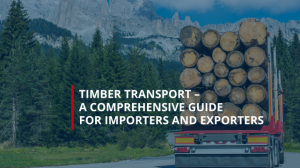

19/09/2024
Resettlement property – everything you need to know
Resettlement property – everything you need to know
Resettlement property is a concept that refers to the exemption of customs and tax fees for people moving their residence to another country. This process can include the transportation of personal belongings, vehicles or even pets, and exemption from fees is only possible under certain conditions. In this article, we will discuss what exactly resettlement property is and what documents are needed, as well as the registration of a vehicle imported as part of this process.
What is resettlement property?
By definition, resettlement property is used personal items such as furniture, bicycles, motorbikes, cars and even portable musical instruments that are transported by people changing their place of residence. An important aspect of this process is the exemption from customs duties that can be obtained under certain conditions. In order to benefit from this privilege, the person resettling must meet specific requirements and the documentation must be carefully prepared.
What conditions must be met?
The basic conditions that must be met for imported items to be considered as resettlement property are:
- Period of use of the property – all items transported must have been in the possession and use of the resettler for at least 6 months prior to the date of departure.
- Place of residence – the resettler must prove that he or she has resided permanently in the country from which he or she is moving for at least 12 months.
These conditions apply not only to everyday belongings, but also to vehicles. If a person is transporting a car, he or she must provide a registration certificate issued in his or her name, which proves that the vehicle has been in use for at least six months.
What documents are needed?
In order to benefit from the duty exemption, the appropriate documentation must be submitted. Although the regulations do not explicitly indicate a catalogue of documents that must be submitted, there is a list of those most commonly required:
- – List of resettlement property – a document in which all items transported, including vehicles, must be listed, along with their body numbers.
- – Vehicle registration certificate – for cars that are part of the resettlement property, it is necessary to provide the registration certificate.
- – Purchase invoices – for example, for furniture or electronic equipment.
- – Evidence of residence abroad – this could be electricity bills, rental contracts or tax returns for the last 12 months.
- – Certificate of registration in Poland.
- – Passport or identity card.
- – Airline ticket or other proof of travel that confirms the date of resettlement.
Each of these documents must comply with the customs and tax regulations of the destination country, so it is worth making sure they are complete and up to date.
Registration of a vehicle under resettlement property
Transporting a vehicle under resettlement property may seem complicated, but the process is well regulated by law. In order for a vehicle to be exempt from customs duties, it must meet the conditions set by law, such as:
- – The vehicle must have been in the owner’s possession for at least six months before leaving the country.
- – The car must be authorised in the country of origin, as evidenced by the relevant registration certificate.
- – Once the vehicle has been imported into Poland, it must be registered, which involves a visit to the Motor Vehicles Department and completion of all the formalities for the vehicle to be admitted to traffic in Poland.
Registering a vehicle requires the submission of several documents, including the registration certificate from the country of origin, insurance confirmation and customs documents that confirm exemption from duties.
What does customs clearance look like?
Customs clearance is a mandatory part of the resettlement process. It involves the submission of a customs declaration and the presentation of all required documents. At this point, the customs authority will assess whether the imported items qualify as resettlement property and whether they meet the requirements for exemption.
Once clearance is completed, the items imported as resettlement property must be used in the new place of residence for the same purpose as in the country of origin. Furthermore, there is a prohibition on the disposal of imported items for 12 months from the date of release. If the item is disposed of earlier, tax obligations and customs duties may arise.
What cannot be exempted?
An important restriction is that resettlement property only includes second-hand items that have been in the possession of the resettler for a certain period of time. You cannot claim exemption from customs duties on:
- – New goods.
- – Alcoholic beverages and tobacco products.
- – Means of transport intended for business activities.
- – Goods used in a gainful or professional activity.
Displaced property and Brexit
Since the UK’s exit from the European Union, all of the provisions described above also apply to people resettling from the UK. Brexit has made the UK a so-called ‘third country’, meaning that customs procedures, including duty exemptions, are now also applicable to moves from the region.
Key information about resettlement property and formalities
The resettlement and duty-free process is a complex procedure that requires proper preparation and the gathering of documents. Resettlement property gives you the opportunity to transport your personal belongings without paying high fees, but any person resettling must remember to comply with all formal requirements, including proper vehicle registration and proper documentation of your stay abroad. With proper preparation, unforeseen costs and problems at the border can be effectively avoided.
Customs agencies of PKS International CARGO S.A. that deal with resettlement property:


Household goods for relocation – what you should know before customs clearance

Road transit from China through Poland to Europe – handling LCL shipments under T1 procedure

International trade – which transport method to choose for your company?

Timber transport – a comprehensive guide for importers and exporters

